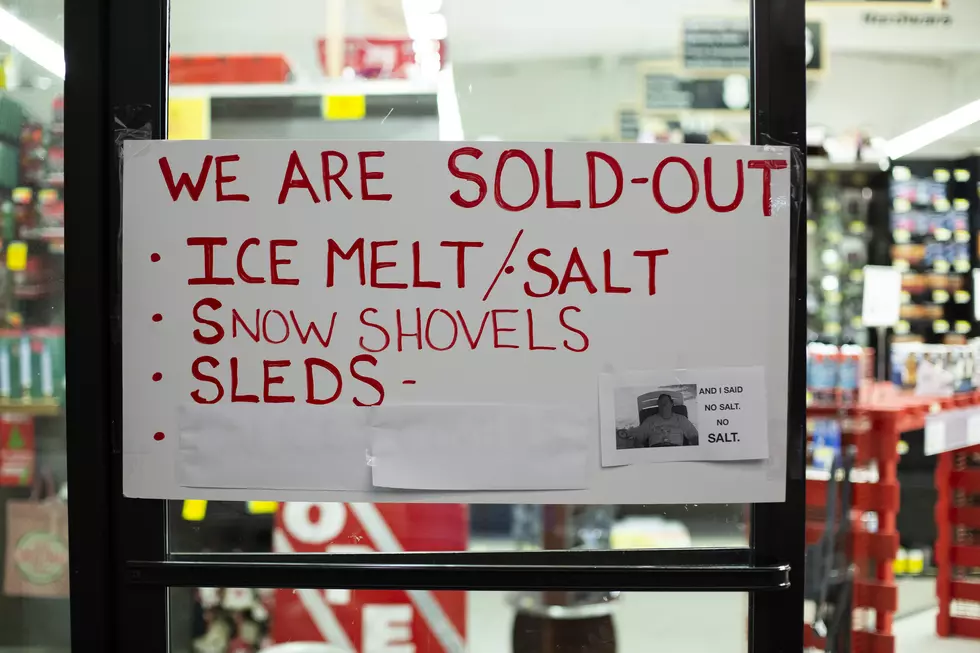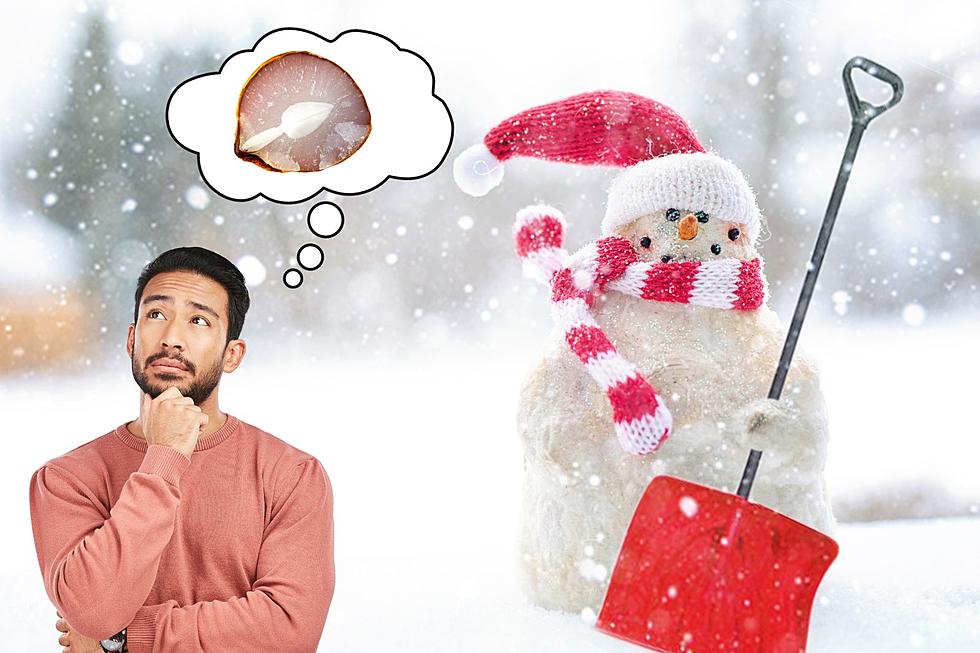
Can’t Find Rock Salt for Your Driveway? There Are Other Options
Following last week's winter weather event that left all of us under at least a thin layer of ice, many of us rushed to grocery stores, department stores, and hardware stores to grab a bag or two of rock salt to sprinkle on our drive and walkways in an effort to lessen the chances walking on it will result in us landing flat on our backsides. As we prepare to for our first "significant snowfall" in years not once, but twice, this week, those of us that didn't rush out and grab rock salt are struggling to find any anywhere. But, the good news is, we have other options.
Salt comes in all types of shapes and sizes, but at the end of the day, it's all the same thing. The rock salt you use on your driveway is the same you put on your food. And, they all help minimize how much water turns to ice when the temperature drops below freezing. If you're interested in learning the science behind how salt works for de-icing your driveway, Sciencing.com has a really good, detailed explanation that covers the chemicals in salt, and how they interact with H2O to slow down the formation of ice.
The difference between all the different salts is how much processing they go through. Rock salt is pretty much salt in it's natural state. It's taken directly from the salt mine, and shipped off somewhere to be bagged and put on store shelves for any number of uses, including, of course, melting ice on your driveway. The only processing it goes through is being crushed into smaller chunks. Food-grade salts like standard table salt, sea salt, and kosher salt are cleaned over and over again to remove other minerals and impurities they pick up naturally making them safe for us to eat.

I'll go out on a limb and say you at least have table salt in your house, and while you could use it on your driveway, chances are you don't have enough to cover it. But, there is another salt option you may or may not already have at home.
If you deal with hard water like we do in Newburgh where I live, you likely invested in a water softening system at some point which uses salt to help weed out the calcium and other minerals that makes the water "hard." I have four - 50 pound bags sitting in my garage right now as a matter of fact. Despite being similar in appearance to rock salt, water softener salt is more closely related to the salts we put on our food as it's processed over and over again until it's nearly pure salt and nothing else.
While you may have visited five different stores looking for rock salt only to come up empty, chances are those same stores have plenty of water softener salt just sitting there ready to go to work on your driveway.
The biggest difference in these salts is going to be the price and how much you're willing to spend. A 26-ounce container of plain table salt at Walmart is $0.58, but you'd obviously need several depending on how much area you're trying to cover. Plus, since the crystals are so small, you'd need quite a bit to cover everything adequately enough that it will do what you need it to do.
On the other, the crystals in water softener salt are larger in size and therefore wouldn't require as much to cover the same area space. A 40-pound bag is currently $4.47 through The Home Depot website.
Chances are, you're not going to find rock salt in Tri-State stores any time soon. So, instead of going from store to store trying to find some, take a look at the other shelves at the first store you go to, chances are they'll have another type of salt that will do the job if you're willing to pay for it.
[Sources: Sciencing.com / National Weather Service / Cargill / Culligan Nation / USGS / Walmart / The Home Depot]
TIPS: Here's how you can prepare for power outages
BE PREPARED: 10 Must-Have Items To Keep In Your Car This Winter
SEE MORE: 6 Items To Help You Stay Warm This Winter (*As Amazon Associates, we earn on qualifying purchases)
More From My WJLT 105.3









